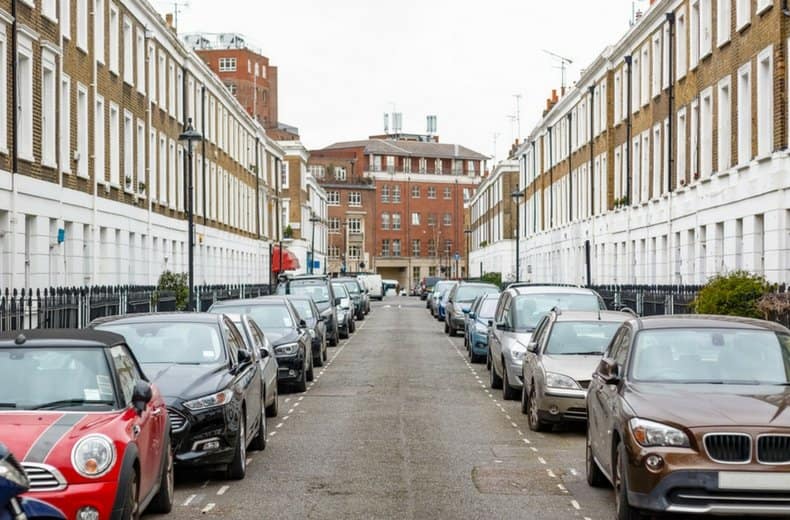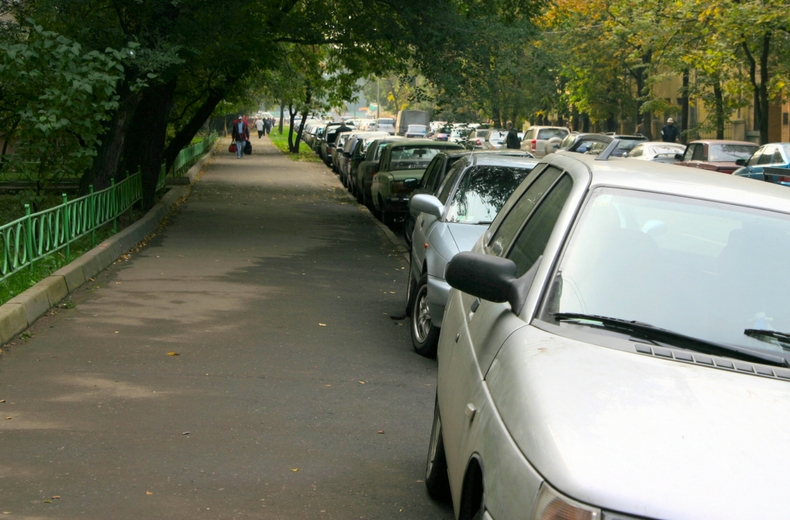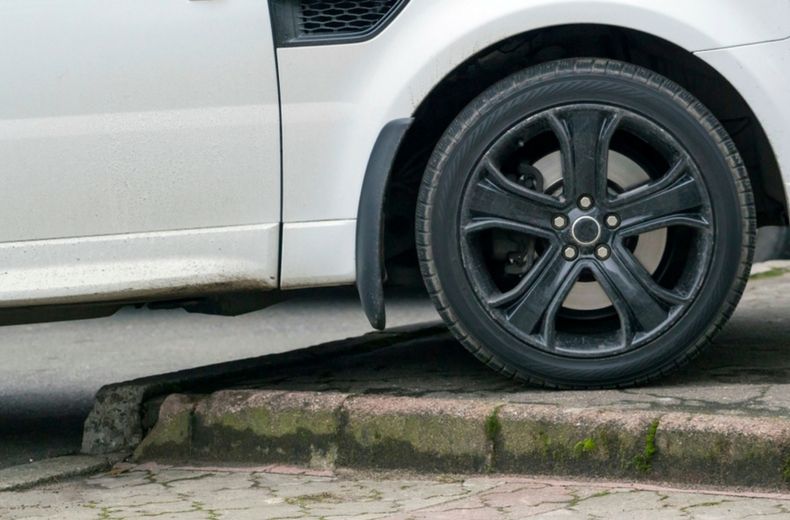The Department for Transport (DfT) has announced it’s considering bringing the rest of the country in line with the capital’s rules – which could land drivers with a £70 fine.
Here we look at the current laws and why it's not clear cut for drivers looking to catch a break in difficult areas to park in this legal guide.
Is it illegal to park on the pavement?

Parking on the pavement is not illegal outside of London and Scotland. You can, however, still get a fine for doing so in some instances, which makes the law quite a grey area.
Since 1974, Highway Code rule 244 has stated that drivers "MUST NOT park partially or wholly on the pavement in London and should not do so elsewhere unless signs permit it."
The key things to note here are the words must not and should not.
In London and Scotland, you must not park on the pavement, the must indicating there is legislation behind this rule and you could receive a fine for breaking it.
However, outside of the capital, Scotland, or “elsewhere”, the Highway Code states drivers should not park on the pavement, meaning it is advisory and not, therefore, backed up by any legislation.
Rule 242 is where it gets a little less clear, stating: "You MUST NOT leave your vehicle or trailer in a dangerous position or where it causes any unnecessary obstruction of the road."
This is a must not, again, meaning if your car is reported or seen by a police officer and judged to be either in a dangerous position or causing an unnecessary obstruction of the road, you could receive a Fixed Penalty Notice.
In the rest of the UK, pavement parking is permitted unless specifically prohibited by a local authority through a Traffic Regulation Order (TRO), which will be explained on nearby road signs.
A 2024 survey with 6,000 RAC Drive readers, who were asked the question 'Should there be a UK-wide ban on pavement parking?', found that 66% supported a national parking ban (3959 votes). A further 10.4% were also in favour of a ban, but only in certain areas or cities.
MORE ADVICE: Is it illegal to park on double yellow lines?

RAC sale – up to 33% off*
• Roadside cover from £5.29 a month†
• We get to most breakdowns in 60 mins or less
• Our patrols fix 4/5 breakdowns on the spot

Why is the rest of the country different to London and Scotland?

A Private Members’ Bill which sought to make parking on the pavement illegal across the UK was previously introduced in parliament in 2015.
However, it didn’t make it past a second reading in the House of Commons after doubts were raised over where residents of narrow streets could park if there are no off-street spaces available.
The Transport (Scotland) Act 2019 bans pavement parking, double parking and parking at dropped kerbs, with certain exemptions designated by local authorities - for example to ensure safe access for emergency vehicles.
Since December 2023, local authorities can fine drivers £100 for parking on the pavement, reduced to £50 if paid within 14 days.
As of June 2025, nowhere else in the UK has banned parking on the pavement.
Will the rules change soon?
Former Transport minister Jesse Norman announced in April 2018: “The department [DfT] is now undertaking a broader piece of work to gather evidence on the issue of pavement parking. We expect to be able to draw conclusions later this year.”
As of June 2025, only Scotland and London have a legal precedent where it is illegal to park on the pavement.
Further announcements are expected on this in the near future.
However, in April 2019, after the Transport Committee launched an inquiry into pavement parking, they reported later that year that the government should allow local authorities to enforce against obstructive pavement parking, with a view to making such an offence subject to civil enforcement.
They also recommended that, in the long term, the government legislates for a nationwide prohibition on pavement parking across England, outside London, enforceable by local authorities.
So far, each of the home nations are at different stages of consultation and legislation.
In England, the most recent time the inquiry was discussed in Parliament was in October 2023.
The Roads Minister at the time, Richard Holden announced: "It is one of the biggest responses we have had on any issue, with tens of thousands of responses, so it is only right that the Government take our time to ensure we get the position right. In the meantime, any local authority across the country can put in place a traffic regulation order and ensure those changes happen on a local level."
READ MORE: Traffic wardens - know your rights & 16 Highway Code rules most people ignore
Get 30 driving tips that will save you money
Running a car isn’t cheap, but there are some easy things you can do to keep your costs down. Get these tips and more useful driving articles sent straight to your inbox now.


What could the fine be for parking on a pavement?

The fine for parking on the pavement varies across the capital. Transport for London currently operates 5% of the capital’s roads where motorists can pay a penalty of up to £130 (reduced by half if paid within 14 days) for parking on pavements.
Under the Greater London Council (General Powers) Act, motorists cannot park on urban roads with their car’s wheels on pavements, grass verges or any land between carriageways.
In Scotland, drivers can be fined £100; reduced to £50 if paid within 14 days.
Want to protect yourself against any losses following an accident? Get legal expenses insurance from just £15 a year with RAC Legal Care Plus.
Did you know we offer specialist learner driver insurance? And if you're looking to borrow a car for a short-period of time, you can take our temporary car insurance from 1 hour to 30 days. It only takes 15 minutes to activate.
Get complete peace of mind at home and at the roadside with RAC breakdown cover today.










